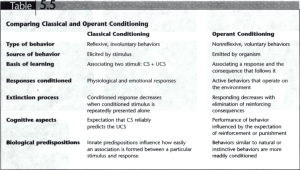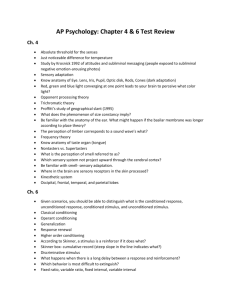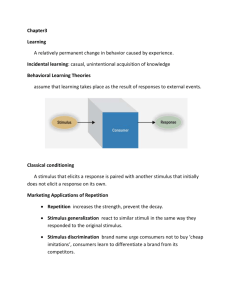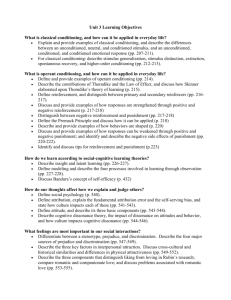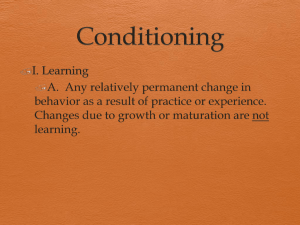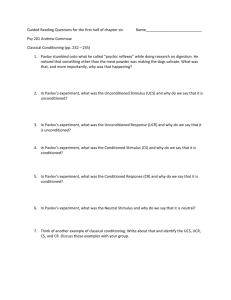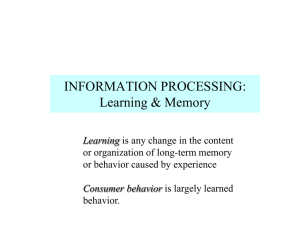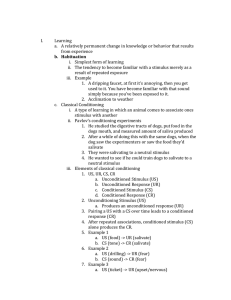StepSize_overview
advertisement
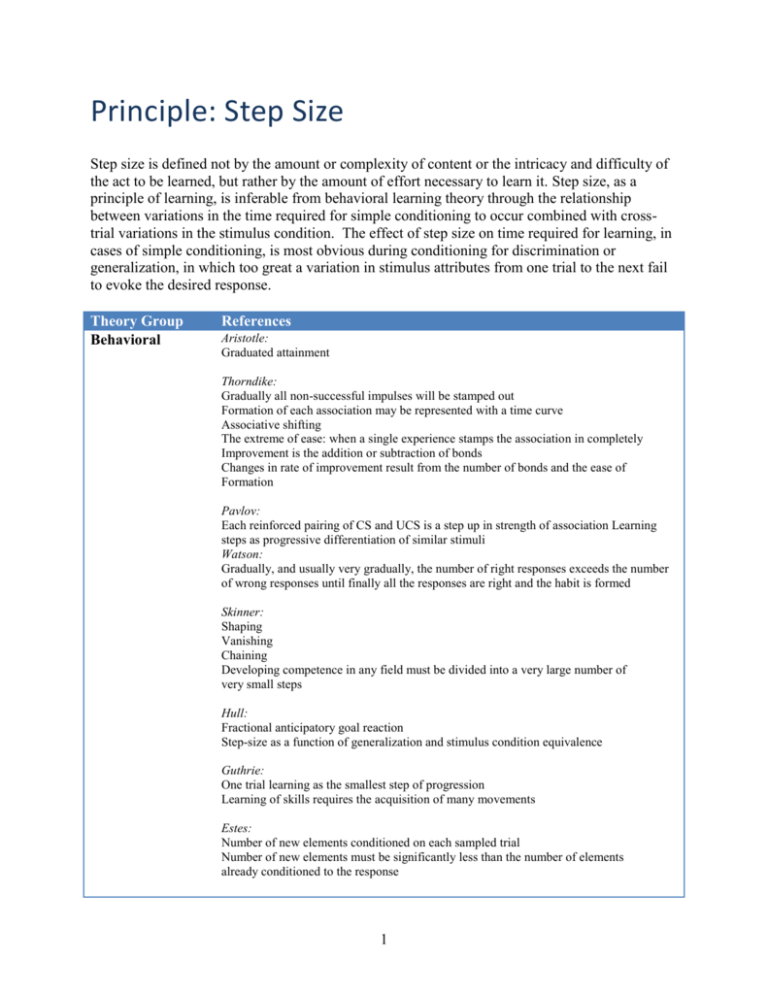
Principle: Step Size Step size is defined not by the amount or complexity of content or the intricacy and difficulty of the act to be learned, but rather by the amount of effort necessary to learn it. Step size, as a principle of learning, is inferable from behavioral learning theory through the relationship between variations in the time required for simple conditioning to occur combined with crosstrial variations in the stimulus condition. The effect of step size on time required for learning, in cases of simple conditioning, is most obvious during conditioning for discrimination or generalization, in which too great a variation in stimulus attributes from one trial to the next fail to evoke the desired response. Theory Group Behavioral References Aristotle: Graduated attainment Thorndike: Gradually all non-successful impulses will be stamped out Formation of each association may be represented with a time curve Associative shifting The extreme of ease: when a single experience stamps the association in completely Improvement is the addition or subtraction of bonds Changes in rate of improvement result from the number of bonds and the ease of Formation Pavlov: Each reinforced pairing of CS and UCS is a step up in strength of association Learning steps as progressive differentiation of similar stimuli Watson: Gradually, and usually very gradually, the number of right responses exceeds the number of wrong responses until finally all the responses are right and the habit is formed Skinner: Shaping Vanishing Chaining Developing competence in any field must be divided into a very large number of very small steps Hull: Fractional anticipatory goal reaction Step-size as a function of generalization and stimulus condition equivalence Guthrie: One trial learning as the smallest step of progression Learning of skills requires the acquisition of many movements Estes: Number of new elements conditioned on each sampled trial Number of new elements must be significantly less than the number of elements already conditioned to the response 1 Theory Group Cognitive References Ebbinghaus: Number of syllables that can be correctly recited after only one ready (usually seven) Number of repetitions necessary for the memorization of a series increases with extraordinary rapidity with the increase in number of the syllables Tolman: No specific correlating local principles identified Kohler: No specific correlating local principles identified Cognitive Information Processing: Limited capacity of attention Limited capacity of short-term memory Rehearsal buffer of limited size Ausubel: Some tasks are so complex that they cannot be learned directly Conditions of practice should gradually begin to approximate the desired (unprompted) end-point of the learning product Step size of practice trials should be adjusted to learner's success or failure on preceding learning Progressive differentiation Schema Theory: Tuning: minor modification to bring established categories into congruence with the functional demands placed on them Restructuring: results from unwieldiness and ill-formedness of some critical mass of information that has been Constructive General: Too small of a step size decontextualizes new information Piaget: Development is a continuous and smooth process Bruner: Acts organized into ensembles Larger and larger units of information Simple components of complex operations Growth in spurts Human Self-Efficacy: Graduated building up of self-efficacy through progressively attenuated scaffolding Social Vygotsky: Incremental attainment through repeated exposure Zone of proximal development Good learning is in advance of development Bandura: Progressive response induction aids The number of subskills which must be combined, or learned to perform a more complex skill Situated learning: Gradual increase in responsibility 2 Theory Group References Activity theory: Large-scale cycles involve numerous smaller cycles of learning actions Cognitive apprenticeship: Managing step size through scaffolding and fading Increasing complexity 3

